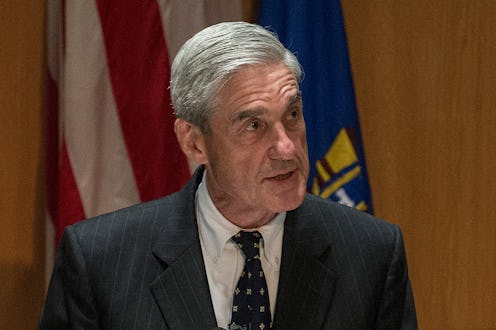
According to a report published in The Wall Street Journal on Thursday, special counsel Robert Mueller has impaneled a grand jury for the ongoing federal probe into whether Russia meddled in the presidential election of 2016. The WSJ referred to two anonymous sources for this report and said that the grand jury "began its work in recent weeks" in Washington, D.C. With the Russian investigation picking up momentum, many are wondering how the grand jury for the Russian investigation will be picked.
According to Squire Patton Boggs law firm member Thomas Zeno who spoke with WSJ, the news of Mueller impaneling a grand jury was "confirmation that this is a very vigorous investigation going on." But he added that it did not mean "[Mueller] is going to bring charges."
According to the report, the news of Mueller impaneling a grand jury also indicates that the Russian meddling probe may go on for months. But special counsel to Trump Ty Cobb said he was unfamiliar with the recent development. He stated, "Grand jury matters are typically secret." He also added that the White House planned to cooperate with Mueller and that it "favors anything that accelerates the conclusion of his work fairly."
So, how exactly is a grand jury picked? First of all, it is critical to remember the difference between a grand jury and a regular jury. By name, it's easy to figure that a grand jury is bigger than a regular jury and may constitute 12 to 23 people. A regular jury is normally six to 12 people. It's also known as a petit jury.
Jurors are randomly selected by the court. The eligibility of a potential juror for the grand jury is determined through a questionnaire that must be completed with full honesty. If eligible, the juror is then summoned by the court for duty. It's a fairly straightforward process.
In a regular jury, the judge and lawyers ask the jurors multiple questions in order to vet them. But in a grand jury, the judge asks selective questions. Given the highly sensitive nature of a grand jury, a juror can be removed at any moment from the panel if the judge deems that they may not be impartial. After all, neutrality is key in any jury but in a grand jury, it becomes crucial to the utmost for jurors to maintain absolute objectivity while examining the case before them.
According to the report published in WSJ, Mueller's move to impanel a grand jury points to the possibility that the special counsel may plan to subpoena records and extract witnesses' testimonies. But, so far, Trump has denied all accusations of possible collusion between Russia and his campaign during the 2016 presidential election while describing the probe as a "witch-hunt." In similar fashion, Russia's leader Vladimir Putin himself has also rejected allegations of collaboration and in one noteworthy instance, he described the criticism and suspicion as "hysteria."